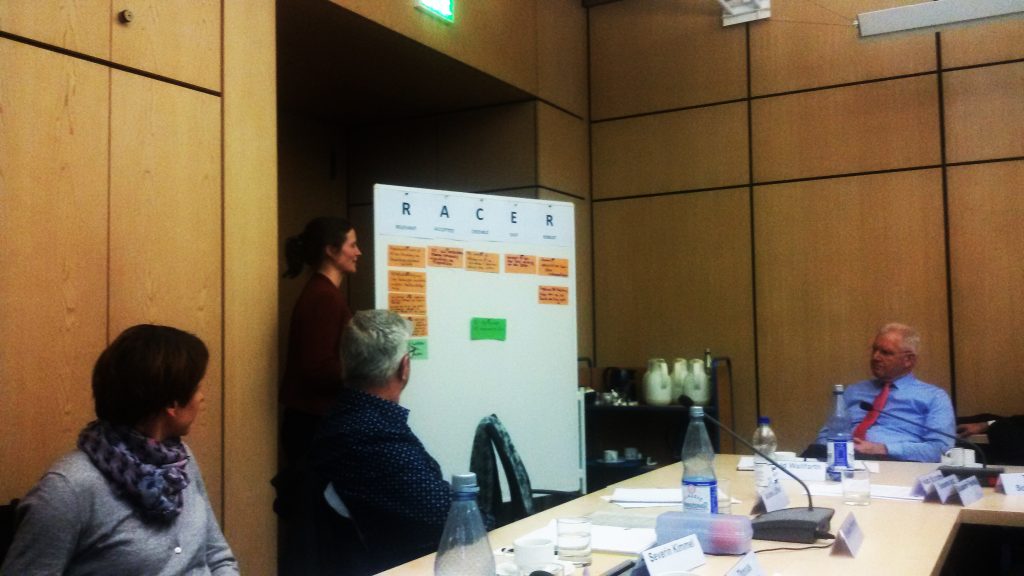BioMonitor is a EU Horizon 2020’s projects that wish to establish an analytical framework that will help stakeholders measure and monitor the European bioeconomy’s impact on society. Led by Wageningen University, the BioMonitor research team is drafting a paper that will define the list of the indicators to be covered by the project.
Maximilian Kardung from Wageningen University’s Agricultural Economics and Rural Policy Group is actively working on the said task. Representing the BioMonitor project, he joined colleagues from the German Bio-economy Monitoring project at a workshop hosted by the German Federal Ministry for Economic Affairs and Energy.
He sought to gain more information about the difficulties faced by German colleagues who have been working on the bioeconomy monitoring system at a national level. Representatives from the academia, German statistical office and governmental agencies besides industry networks gathered to assist to the presentation on the preliminary results or the German Bio-economy Monitoring project.
Two other members of the BioMonitor partnership, Martin Banse (Thünen Institute of Market Analysis) and Stephan Piotrowski (NOVA Institute ) were also present in the workshop as the two institutes are also deeply involved in the German Bio-economy Monitoring project.

The approach followed by BioMonitor on developing the monitoring system varies from that of the German Bio-economy Monitoring project. Nevertheless, the challenges faced by both projects are similar; they both emphasize how patent applications related to the bioeconomy are strongly linked to innovation. In addition to that, they face the necessity to fill in the missing data and set a clear distinction as to what can be attributed to the bioeconomy.
Putting aside the differences between the two projects, Maximilian has a positive outlook on how the future of the bioeconomy monitoring system in Europe is developing. “The bioeconomy has great potential for innovation on all spatial levels, which needs to be made visible and promoted,” stated Maximilian. “The workshop of the German Bio-economy Monitoring project has shown me that BioMonitor is on the right track as it will emphasize the importance of investment, innovation and patents”.





